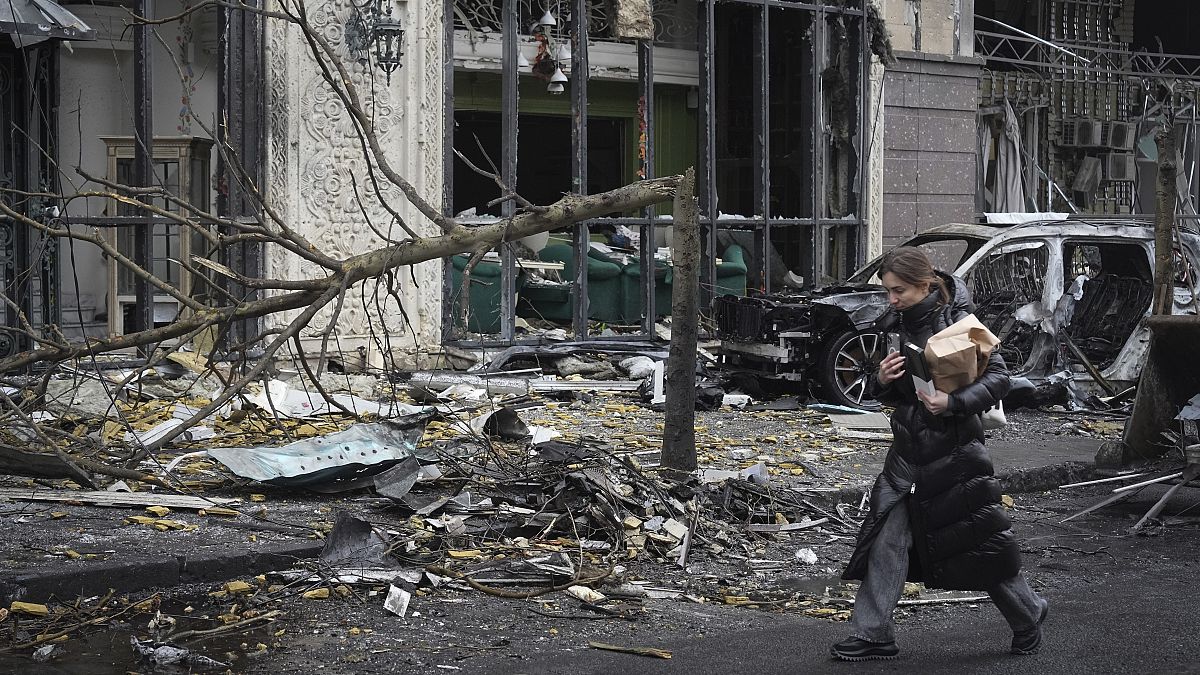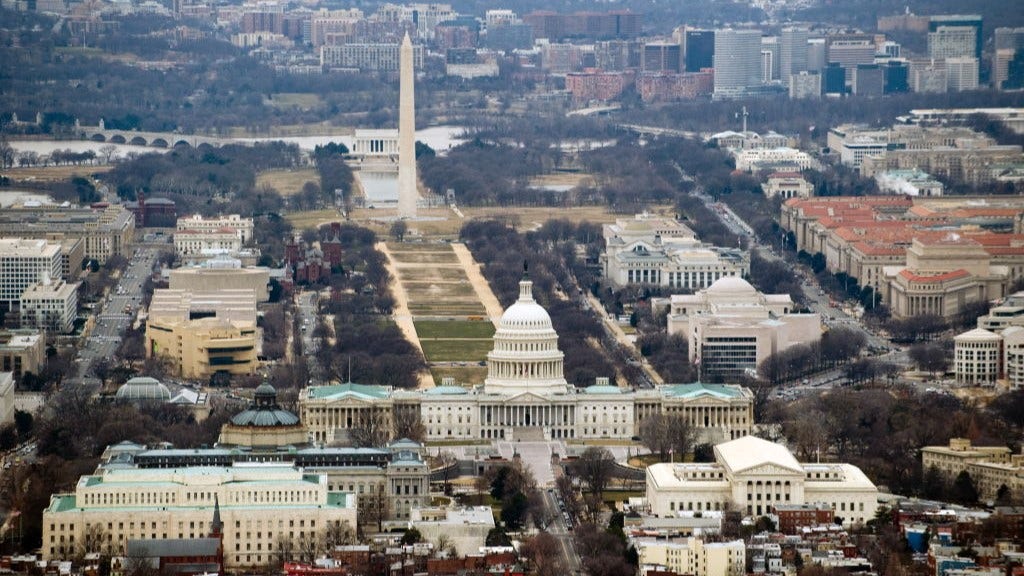Utah
Over 18K acres of ‘important’ Utah forest preserved through US program

Estimated read time: 2-3
minutes
SALT LAKE CITY — Utah land managers say they are thrilled that more than 18,000 acres of private forest land were recently selected by the U.S. Forest Service to be preserved forever.
The U.S. Forest Service included the 15,623-acre Coldwater and 2,725-acre Bear River Mountains Connectivity (Goring Forest) projects as a part of its 2023 Forest Legacy Program projects announced in late June. The federal agency is sending Utah about $14.4 million to acquire and protect the two project areas, which are located in Box Elder and Rich counties, respectively.
The federal funding, coming from the 2022 Inflation Reduction Act, allows for conservation easements that protect the forests as natural spaces. Both sites were considered “highly developable” and that could have led to impacts on downstream water users and wildlife habitat, said Natalie Conlin, the Forest Legacy Program coordinator for the Utah Division of Forestry, Fire and State Lands.
Division officials say the Coldwater project offers “a rare opportunity for landscape-level conservation,” tying together existing Forest Legacy projects, national forest lands and a state wildlife management area with U.S. Fish and Wildlife Service’s Bear River Watershed Conservation Area. It’s considered a “crucial habitat” for bald eagles and elk in Utah.
An easement will help also sustain local timber jobs and protect the watershed, the agency adds.
The Goring Forest project, on the other hand, protects “crucial” moose, elk and deer habitat within the Uinta-Wasatch-Cache National Forest’s “critical interstate wildlife corridor,” according to division officials.
“The funding of these projects is an important step in protecting forest resources for the benefit of the public,” Conlin said in a statement Wednesday.
The Forest Legacy Program dates back to 1990, leading to easements for more than 3 million acres of forests across the country. The pair of Utah projects are two of 34 projects in 22 states that the Forest Service funded this year. All of the projects cover more than 245,000 acres nationwide, totaling $188 million.
U.S. Agriculture Secretary Tom Vilsack explained that all of the forests included in the round of funding are considered “vital” to their local communities and are “critical to the health of our planet,” too.
“As private forest landowners continue to face pressures to convert forests, the Forest Legacy Program keeps working forests working,” he said last month.
Most recent Environment stories
More stories you may be interested in

Utah
Opinion: Cox’s support for Trump’s immigration policies is imprudent
Earlier this month, Gov. Spencer Cox stated that he “remained committed” to the Utah Compact on Immigration, a document first released in 2010 and reaffirmed by state leaders in 2019. Cox said, “The principles of the Compact, I think, are still very important.” That is good news for Utah. The bad news is Cox’s support for President-elect Donald Trump’s plans for mass deportation.
Cox was not elected to the Utah House of Representatives until 2012, two legislative sessions after the Utah Compact was released followed by unprecedented support by former Gov. Gary Herbert and the conservative state Legislature for comprehensive state-based immigration reform. And despite his welcome support recently for the Utah Compact, I cannot seem to locate a moment when Cox actually signed the document — though I will happily stand corrected if wrong.
My point is that supporting the principles in the Utah Compact while supporting Trump’s mass deportation plans feels a bit like double-dealing.
I am a co-author of the Utah Compact. While I ran Sutherland Institute, we played an instrumental role in changing public opinion on immigration — from 70% of Utahns favoring Trump-like enforcement-only policies early in 2010 to 70% favoring the Compact and the comprehensive reforms passed by the state Legislature in 2011. I was present from beginning to end of those historic and precedent-setting policy reforms.
In other words, I know whereof I speak when I say that the Utah Compact stands in stark contrast to Trump’s rants on mass deportation policies. The policies underlying the 2011 immigration reforms strove to bring otherwise law-abiding undocumented immigrants to the surface of society, leaving the residue of criminal immigrants for law enforcement to clean up. Utah warmly embraced existing undocumented immigrants already living among us peaceably and productively.
In contrast, Trump’s policies underlying mass deportations — insomuch as anyone knows what that means today — portray undocumented immigrants as criminals. And while the label is legally true — a person crossing our border for the first time, for any peaceful and productive reason, commits a misdemeanor — no decent Utahn would treat that person as a hardened criminal. In fact, the offense was simply an “infraction,” like a speeding ticket, when the Utah Compact was created.
I am quite sure that Gov. Cox does not really have in mind deporting every undocumented resident of Utah. The governor is a decent and prudent man, not inhumane or impractical. And yet, what does he mean by supporting Trump’s policies?
Cox announced a five-prong strategy for the state to work with federal immigration officials focusing on “criminal behavior.” Nothing about those five policies gives me concern. What does give me concern is probable overreach by the Trump administration when it deems “criminal behavior” to include otherwise law-abiding undocumented immigrants. My concern is when malum prohibitum is equated with malum in se — when an infraction or misdemeanor is equated with murder, rape and other felonies.
Prior to the historic immigration reforms in 2011, Sutherland Institute published an essay, “Onus or Opportunity: Immigration and Conservatism,” in which we made an authentic conservative argument for those comprehensive reforms.
A serious consideration for us at the time was to ensure that the growing tide of opinion favoring enforcement-only immigration policies did not produce a new police-state mentality. Authentic conservatives certainly believe in law and order but we don’t believe in police states. The Trump-Cox policies proposed are one slight interpretation away from a police state. If “criminal behavior” includes mere undocumented immigrants, authentic conservatives have reason for concern.
The principles of the Utah Compact are the most prudent model to maintain justice and humanity. I know Gov. Cox understands this in his heart.
Utah
‘A taste of home’: Watch adorable dogs at Utah shelter get presents from Santa

Dogs at an animal sanctuary in southern Utah had a paw-sitively delightful Christmas morning as they picked out presents from Santa’s sleigh.
Best Friends Animal Sanctuary in Kanab, just north of the Arizona border, hosted a “Santa Sleigh” Christmas morning for dogs at the shelter. The shelter says the pups “joyfully picked out toys” from a sleigh “decked out in holiday trimmings and loaded with more than 500 toys” donated by the non-profit’s corporate partner, Pet Supplies Plus and Blue Buffalo.
Video footage shared by Best Friends shows dozens of dogs sniffing around for the best presents, which included ropes, balls and squeaky toys. The shelter dogs also got cuddles and treats from Best Friends volunteers and staff members.
Dozens of shelter dogs receive toys from ‘Santa Sleigh’
Dozens of dogs at the Best Friends Animal Sanctuary in Utah picked out gifts from “Santa Sleigh.”
‘Meaningful tradition’
Best Friends Animal Society CEO Julie Castle said in a statement that the event “is a truly meaningful tradition at Best Friends.”
“It gives the Sanctuary dogs a taste of home until they find loving families of their own,” Castle said. “It also makes our caregivers happy to provide this special experience for the dogs they care for every day.”
The sleigh made the rounds to more than a dozen locations at the Sanctuary’s Dogtown, delighting more than 400 dogs awaiting adoption. Best Friends said the dogs at the sanctuary came from shelters in Utah and across the country.
Dogtown is described as a “place of healing, learning and fun for dogs and puppies.”
Founded in 1984, Best Friends, is a leading animal welfare organization with shelters across the country. The organization aims to end the killing of dogs and cats in America’s shelters and make the country no-kill in 2025. The sanctuary, meanwhile, is the largest of its kind in the U.S., according to Best Friends website and is “tucked into the majestic canyons of southern Utah.”
Saman Shafiq is a trending news reporter for USA TODAY. Reach her at sshafiq@gannett.com and follow her on X and Instagram @saman_shafiq7.
Utah
Mega Millions lottery draws Utahns to Arizona for chance to win big

ST. GEORGE, Utah — When most Utahns hear about a big prize above a billion dollars, they’re out of luck. That is unless they live in southern Utah with a 30-minute drive from Arizona.
“I’m from St. George, Utah and I have the winning tickets,” Cindy Gaines yelled waving her Mega Millions tickets.
Gaines runs Discount Plumbing with her husband Josh in St. George, though she admits that doesn’t make them rich.
“It keeps us going and we pride ourselves on not being a big corporation,” she said. “But when we win, we’re going to reinvest the money in our company, keep our prices down and keep our customers happy. “
What Gaines wants to win is the Mega Millions national lottery prize being drawn on Friday night which will be somewhere above $1.2 billion.
While national lotteries aren’t legal in Utah, people in southern Utah are willing to drive 30 minutes across the state line to Arizona – where Mega Millions can be played.
St. George resident Brian Cram was one of them and said his reason for chasing a billion-dollar dream is to not worry about finances.
“I mean obviously there’s house and cars and being able to get those things when you want,” said Cram. “But ultimately, yeah, it’s just you, your friends, your family saying, ‘Hey, you’re done worrying about those kind of things.’”
The Eagles Landing truck stop is the first place people driving down the freeway from Southern Utah can get to where the Arizona Lottery can be played.
But it wasn’t just people from Utah who were from out of state.
“I’m coming from Las Vegas!” exclaimed Elinor Gacae. “You know, there’s no lottery over there so I just needed to make sure I get some lottery tickets.”
If nobody wins on Friday night, then at least another $100 million will be added to the prize, making it at least $1.3 to $1.4 billion for the next draw on Tuesday.
-
/cdn.vox-cdn.com/uploads/chorus_asset/file/24924653/236780_Google_AntiTrust_Trial_Custom_Art_CVirginia__0003_1.png)
/cdn.vox-cdn.com/uploads/chorus_asset/file/24924653/236780_Google_AntiTrust_Trial_Custom_Art_CVirginia__0003_1.png) Technology1 week ago
Technology1 week agoGoogle’s counteroffer to the government trying to break it up is unbundling Android apps
-

 News1 week ago
News1 week agoNovo Nordisk shares tumble as weight-loss drug trial data disappoints
-

 Politics1 week ago
Politics1 week agoIllegal immigrant sexually abused child in the U.S. after being removed from the country five times
-

 Entertainment1 week ago
Entertainment1 week ago'It's a little holiday gift': Inside the Weeknd's free Santa Monica show for his biggest fans
-

 Lifestyle1 week ago
Lifestyle1 week agoThink you can't dance? Get up and try these tips in our comic. We dare you!
-
/cdn.vox-cdn.com/uploads/chorus_asset/file/25672934/Metaphor_Key_Art_Horizontal.png)
/cdn.vox-cdn.com/uploads/chorus_asset/file/25672934/Metaphor_Key_Art_Horizontal.png) Technology4 days ago
Technology4 days agoThere’s a reason Metaphor: ReFantanzio’s battle music sounds as cool as it does
-

 News5 days ago
News5 days agoFrance’s new premier selects Eric Lombard as finance minister
-

 Business3 days ago
Business3 days agoOn a quest for global domination, Chinese EV makers are upending Thailand's auto industry




















